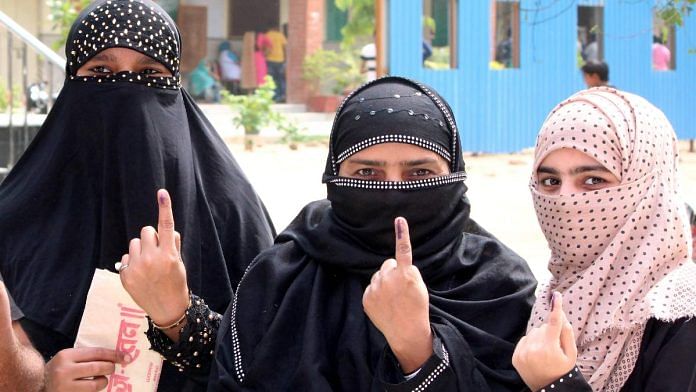Since India gained independence, leadership within the Muslim community has been a subject of uncertainty. Numerous individuals have taken it upon themselves to assume leadership roles, often without a solid foundation. A notable example is the All India Muslim Personal Law Board, or AIMPLB, acting as a spokesperson and leader for Muslims without undergoing an electoral process, essentially operating as a non-governmental organisation. This raises questions about the representation of Muslim leadership in the post-independence era.
Initially, I held a different perspective on the leadership crisis within the Indian Muslim community. I questioned the necessity of having Muslim leaders exclusively for Muslims. I believed that any national leader could effectively represent the interests of the Muslim population. However, my viewpoint evolved as I observed past governments consistently treating religious leaders as de facto representatives of the Muslim community. This approach bypassed administrative channels, inadvertently consolidating the influence of religious figures in community matters. Additionally, the concept of Ashraaf leadership, representing the elite and affluent segment, further detached itself from the realities of the majority of Indian Muslims, whose experiences markedly differ from those of the privileged minority.
As my understanding deepened, I came to appreciate the significance of community representation.
A need for authentic representation, reform
While individuals from diverse backgrounds can assume leadership roles within the Muslim and other Indian groups, it is also important for a community to have genuine representation.
A leader who is not only rooted in the populace but also comprehends the unique realities, mind-sets, and needs of the people can establish more effective communication and address community concerns more adeptly. Leaders who are attuned to the specific needs of the community are more likely to establish a more targeted and responsive approach. This not only addresses the immediate concerns of the community but also fosters a sense of genuine representation.
When individuals within a community feel that their unique needs are acknowledged and addressed, it creates a stronger connection between the group and the broader nation. This sense of representation goes beyond mere acknowledgment; it instils a feeling of being an integral part of the national fabric. In turn, it contributes to a more cohesive and inclusive society where diverse voices are heard and valued.
However, I have consistently perceived a lack of authentic leadership that genuinely represents the Indian Muslim community, communicates its needs, and advocates for necessary reforms.
While entities like AIMPLB, the Waqf Board, and the Minority Affairs Ministry (?) address Muslim concerns, whether they authentically represent and prioritise the well-being of the community remains open to question. These organisations often seem more focused on consolidating their own power dynamics or perpetuating the status quo. For instance, rather than championing initiatives for gender equality, they tend to reinforce traditional gender roles. Regional leaders such as Asaduddin Owaisi, who only represent the Muslim population of a single state, tend to intertwine religion with politics. This approach often leads to opposition to any reform that could potentially benefit the Muslim community on a broader, national scale.
Pasmanda leaders can ensure an inclusive future
In my opinion, the absence of leaders emerging from the Pasmanda community is the predominant factor contributing to the lack of forward-looking, secular leadership that understands the social, economic, and political aspirations of the masses.
Ashraaf leaders, largely part of the elite, appear indifferent to the concerns of Pasmanda Muslims. Instead, they exploit the sentiments of this marginalised group solely for electoral gains, relegating them to a narrative of perpetual victimhood. This strategic use of victimisation serves to absolve the Ashraaf leaders of any meaningful accountability, perpetuating a cycle of neglect and exploitation within the Pasmanda community.
Dalits and other backward classes have found political channels to effectively express their socio-economic, political, and human rights concerns, but marginalised Pasmanda Muslims have been denied the opportunity due to the elite Ashraaf class claiming to represent them.
Let’s delve into history, where the resonance of Pasmanda leadership echoes with the stories of figures like Abdul Qaiyum Ansari and Maulana Ali Hussain Asim Bihari. These leaders, unlike their Ashraaf counterparts, stood against Partition and fervently advocated for reforms within the Muslim community. Their legacy is etched in their tireless efforts towards education and women empowerment. Take Asim Bihari, for instance, who not only founded numerous organisations dedicated to the education of marginalised communities but, remarkably, established women’s wings within these entities, as exemplified by the Bihar Weavers’ Association in 1932. His actions speak volumes about his profound understanding of the genuine needs of the community and his unwavering commitment to guide it in the right direction.
Similarly, Abdul Qaiyum Ansari embodied leadership that transcended the divisive demands of the Muslim League for a separate nation. As the editor of the Urdu weekly Al-Islah (The Reform) and the monthly Musawat (Equality) in the pre-independence era, Ansari tirelessly worked towards a vision that prioritised the well-being of the community over confrontations with the majority. Their stories tell us that the hearts of Pasmanda leaders beat in sync with the community they represent, driven by a genuine commitment to uplift and nurture rather than pursue divisive paths.
I strongly believe in the necessity of a new movement— one where Pasmanda Muslims can step forward and establish their own organisations. It’s crucial to cultivate a forward-looking, secular leadership that genuinely comprehends the community’s social, economic, and political interests, as well as the aspirations of its masses. This movement can serve as a beacon of empowerment and representation for Pasmanda Muslims, fostering a path toward a more inclusive and responsive future.
Amana Begam Ansari is a columnist, writer, TV news panelist. She runs a weekly YouTube show called ‘India This Week by Amana and Khalid’. She tweets @Amana_Ansari. Views are personal.
(Edited by Asavari Singh)
This article is the first part of a series called ‘Where is the Muslim leadership question’.



